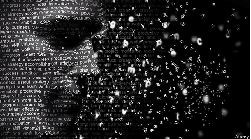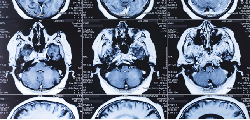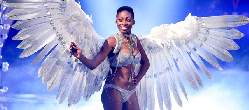June 2018 Culture and Society
Read the articles selected in June 2018
El museo del Prado cambia la suerte de Lorenzo Lotto
By Ángeles García
Source: El País, 16 June
The Museum del Prado presents a retrospective dedicated to the great, in Spain not well-known, Italian portrayer of the 1500’s middle class. Fallen to ruin for staying true to his thorough personal artistic criterion, with his language of signs he was able to tell for the first time the mood of his characters.
Un régime aux mille facettes
By Paul François Paoli
Source: Le Figaro, 21 June
After two French scholars, the idea of the République didn’t appear with the Revolution and the social contract, but has specific origins in the Middle Ages, in the theme of the mixt regime by Thomas Aquinas, inspired by Aristoteles and founded on the common good.
At a loss for words? Join the Bureau of Linguistical Reality
Source: The Economist, 19 June

The Bureau of Linguistic Reality is a project of conceptual art and an open dictionary, which intends to fill the failure of the words apt to telling the emotions and the experience of the changing world. Harnessing the poetic function of the language, these neologisms touch the beating heart of our fears.
Read more:
Und Frauen können von Natur aus keine Physik?
By Peter Praschl
Source: Die Welt, 18 June

The Delusions of Certainty by Siri Hustvedt faces the question of the relation between body and conscience, which from the Cartesian dualism has come unresolved in the neurosciences, under the cover of our not proved certainties and linguistic uses, yet all the more timely in the comparison between human and artificial intelligence.
Read more:
Quand la littérature subit les nouveaux censeurs
By Mohammed Aïssaoui
Source: Le Figaro, 9 June
The politically correct risks to kill the freedom of literary writing. The many associations of sensitivity readers have the power to influence the publishers to the point of being considered a segment of the books chain. But the censure is often a boomerang.
El himno a la alegría
By Javier Moreno Luzón Eulogia Merle
Source: El País, 12 June
The idea of a united Europe is today a little grey. The legitimacy of the European institutions can be only grounded on the perception that the European identity is something we belong deeply and concretely to, beyond the occasional rhetoric.
How violent conquistadors from Europe changed the eco-balance of planet Earth
By Robert Mckie
Source: The Observer, 10 June
The conquest of America has given inception not only to the globalization but also to the Anthropocene. The import of pathogens unknown in the New World, which killed 50.000 people, changed the landscape and the atmosphere, while the transformation of the farming on the Planet caused the first deforestations.
Ana Frank, caso abierto
By Guillermo Altares
Source: El País, 12 June
The capture of Anne Frank has never been explained and is still object of many hypotheses, although it is plain that in Holland one in two Jews didn’t have any chance of survival. After the last reconstruction, the child has been betrayed by a woman and hasn’t been found casually by the police.
Warum hat die Schönheit so einen schlechten Ruf?
By Timo Frasch
Source: Die FAZ, 6 June

In our civilization, the personal talent is a gift which we have to develop, object of social approval and selection. Beauty, instead, although always meeting our neighbor’s judgment, is a taboo area, having lost the Greek meaning of kalokagathia.
Read more:
Rimes féminines..& masculines
By Thierry Clermont
Source: Le Figaro, 7 June
The success of the “Marché de la Poésie” testifies an increasing and real demand for poetry in an age when many other means of expression are immediately at reach. The consistent feminine share among the authors imprints a certain sensibility to the poetic writing but can’t label a so singular language.
The assassination of RFK
By Nina Burleigh
Source: Newsweek International, 8 June
Fifty years ago, the assassination of Robert Kennedy, soon after the murder of Martin Luther King, blew out forever the dreams of a generation. Today, his example remembers that the history should give us a lesson which unites, instead of dividing, to not to repeat the errors of the past.
Youtubeurs La nouvelle vie d’artiste
By Vincent Brunner
Source: Libération, 2 June
The music is no longer an elitist medium thanks to Youtube, where they can play cheaply and with a great freedom. The school of the Do it yourself teaches to emerge with the cover, the most successful format and throws in the web the artistic aura of the musical works.
Who owns an idea?
Source: The Economist, 28 May

The lawsuits shaking the fiction world concern the not simple question of the copyrights infringement. Indeed, the idea protected by the right is a good not well-defined and impossible object of legal property. After the law, creativity lies in the details and not in the backbone of a story.
Read more:
https://www.economist.com/prospero/2018/05/28/who-owns-an-idea
How television is changing the rom-com
Fonte: The Economist, 29 May

The long acts of the small screen and the commercial imperative to offer indefinitly replayable products have made possible to explore new narrative paths, developing complex and nuanced characters and themes that have recovered and given new light to classic genres like the rom-com and the western.
Read more:
https://www.economist.com/prospero/2018/05/29/how-television-is-changing-the-rom-com
Entrevista a Catherine Nixey
By Guillermo Altares
Source: El País, 20 May
The Darkening Age by Catherine Nixey sinks in the not well-known age of the Christianization of the Roman Empire, when 99 percent of the classical civilization has been destroyed, to show, even if paradoxically, the devastating consequences of every fanatism, both religious and ideological.
Laurent Lemoine “Nous vivons malheuresement un retour du religieux, pas du spirituel”
By Bernadette Sauvaget
Source: Libération, 26 May
After the theologian psychoanalyst Laurent Lemoine, in the religion, there aren’t questions neither reason, but rather a sense of belonging which creates identities and thus intolerance and divisions. Differently, the spirituality is a quest for sense which deals with the empty and the uncertainty.
Info
- Pubblicato il : 02/07/2018 Modificato il : 04/04/2019
Allegati
- Un régime aux mille facettes pdf
- El Museo del Prado cambia la suerte de Lorenzo Lotto pdf
- Ana Frank, caso abierto pdf
- How violent conquistadors from Europe changed the Earth pdf
- El himno a la alegría pdf
- Quand la littérature subit les nouveaux censeurs pdf
- Youtubeurs La nouvelle vie d'artiste pdf
- The Assassination of RFK pdf
- Rimes féminines..et masculines pdf
- Laurent Lemoine pdf
- Entrevista a Catherine Nixey pdf

